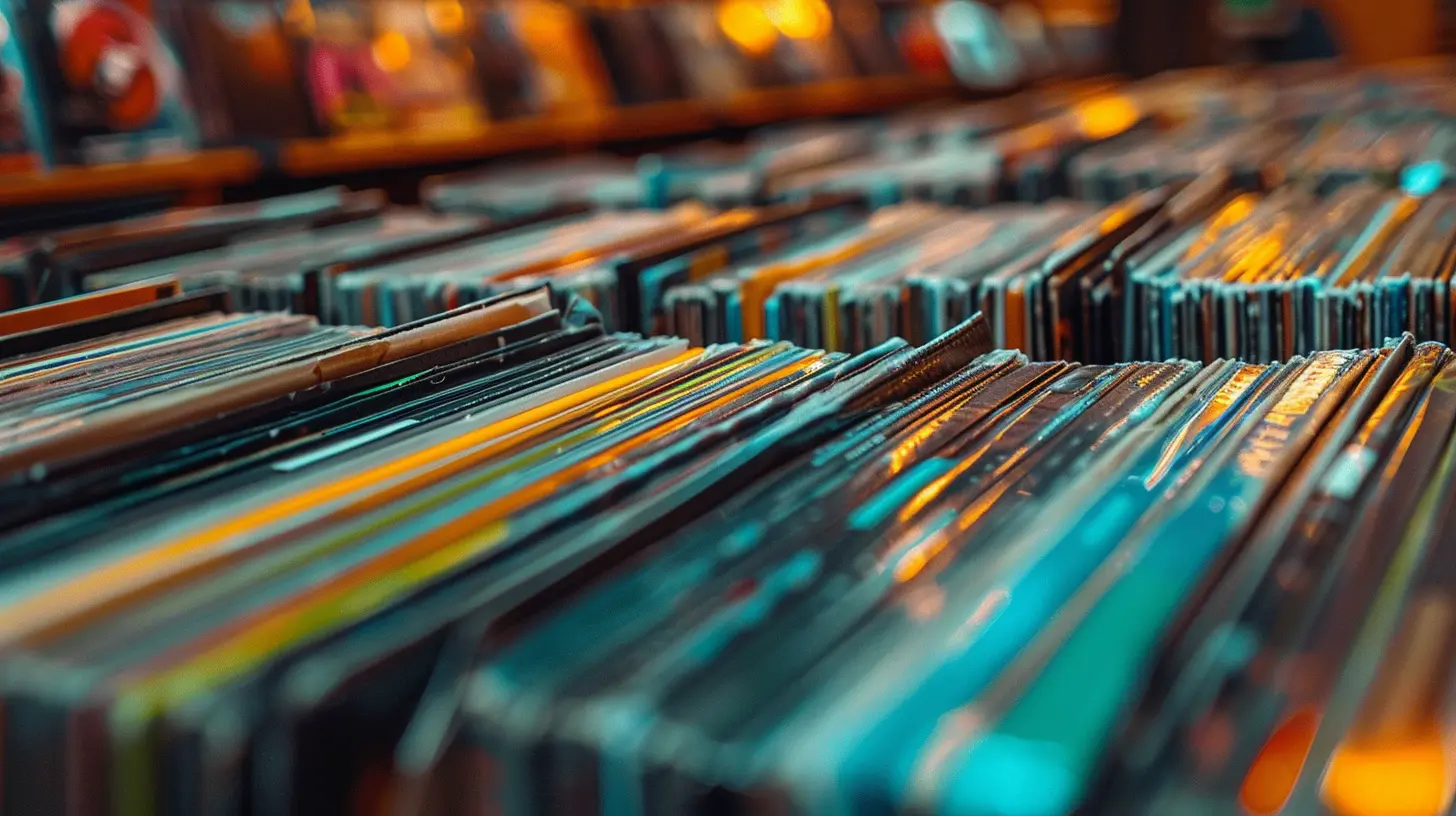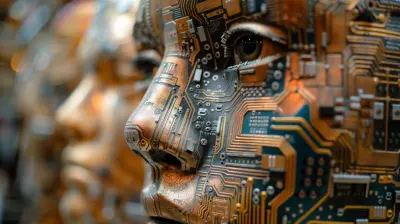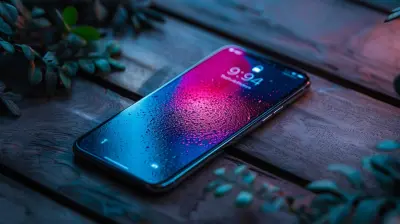Can Blockchain Save the Music Industry from Piracy?
10 July 2025
The music industry has come a long way—from vinyl to cassettes, CDs to digital downloads, and now to streaming. But one persistent plague has stuck around like that one song you just can’t get out of your head. Yep, you guessed it: piracy.
Despite all the innovation and growth, music piracy continues to rob artists, producers, and labels of billions each year. The digitization of music made access easier for fans, but it also made stealing it easier for pirates.
Now, here’s where things get interesting. There’s a new sheriff in town—blockchain technology. It’s already shaking up finance, real estate, healthcare, and even voting systems. But the question is: Can blockchain save the music industry from piracy?
Let’s unpack this together.
What’s the Big Deal With Music Piracy Anyway?
Alright, before we dive into the fix, let’s talk about the problem.When we talk about music piracy, we’re not just talking about shady websites or torrents. We're talking about unauthorized streaming, leaked tracks, bootleg albums, and even fake artist profiles on streaming platforms. According to industry estimates, piracy costs the global music industry over $12 billion annually. That’s a lot of missed rent checks for indie artists.
Piracy impacts everyone:
- Artists lose royalties.
- Labels lose revenue.
- Producers and composers don’t get paid.
- Fans? Well, they sometimes miss out on high-quality, official content.
So, yeah, music piracy is still a massive problem despite laws, DRM protections, and streaming services like Spotify and Apple Music trying to put up guardrails.
Enter Blockchain: The Digital Watchdog
So what is blockchain, really? You’ve probably heard about it in the context of Bitcoin and crypto bros making millions from their basements, right?But blockchain is way more than just cryptocurrency. At its core, blockchain is a distributed digital ledger. Think of it as that super organized friend who never forgets anything and writes down every single detail—even the time you borrowed their pen in 3rd grade.
It records transactions in a transparent, secure, and immutable way. Once something is on the blockchain, it’s locked in. No deletions. No rewrites. No funny business.
How Could Blockchain Prevent Music Piracy?
Great question. Let’s break it down like we would a remix.1. Immutable Ownership Records
One of the biggest pain points in the music industry is knowing who actually owns what. Rights management is a total mess. A single song might have a dozen stakeholders—singers, songwriters, producers, label execs—and figuring out who gets what is... well, chaos.With blockchain, every track could come with its own digital “birth certificate.” Every time it’s played, shared, sold, or licensed, the blockchain ledger would record the transaction. This makes it super clear who owns what and how profits should be divided.
No more disputes. No more “he said, she said.” Just one transparent source of truth.
2. Smart Contracts for Royalty Payments
Smart contracts are like vending machines for the digital world. Programmable contracts execute automatically when certain conditions are met.Imagine this: You upload your song to a blockchain-based platform. Each time someone plays it, boom—automatic royalty payment goes directly to your crypto wallet. No middlemen. No delays. No shady accounting.
It’s fast, fair, and frustration-free.
3. Secure Distribution
Blockchain can also act as a fortress for digital files. Rather than uploading a track to a centralized server (which can be hacked or duplicated), artists can distribute their music through decentralized networks.Think of this like sending out your tracks via a swarm of digital bees. Each bee carries only a fragment, making it nearly impossible for pirates to steal the whole hive.
Only those with authorized access can reassemble and play the track—dramatically reducing illegal downloads.
4. Transparent Usage Tracking
Have you ever wondered how often a song is actually played on a streaming platform? Yeah, so do most artists.Blockchain can provide real-time tracking of how music is used. Whether it’s played on a smart speaker, in a YouTube video, or in a nightclub in Berlin, every spin can be logged and linked to a royalty payout.
Now that’s what we call giving credit where credit is due.
Real-World Examples: Who’s Already Doing It?
This all sounds great in theory, but let’s talk real-life applications. Blockchain in music isn’t just a buzzword—it’s already happening.🎵 Audius
Audius is a decentralized music streaming platform built on blockchain. It gives power back to artists by letting them upload their own content and control how it’s distributed. No record labels. No middlemen. Just creators and fans.🎧 Vezt
Vezt allows artists to tokenize their music rights and sell shares of future royalties to fans. Imagine owning a piece of your favorite track and getting paid every time it’s played. Wild, right?🎤 Mycelia
Founded by Grammy-winning artist Imogen Heap, Mycelia focuses on using blockchain to empower musicians with digital IDs and smart contracts. It’s part music platform, part rights management system—think Spotify meets LinkedIn for artists.These platforms prove that blockchain isn’t just theory—it’s the real deal.
Is Blockchain a Silver Bullet?
Okay, now let’s get real.Is blockchain going to wipe out piracy overnight? Nope.
Like any tool, blockchain isn’t magical. It’s a part of the solution—not the whole fix. There are still challenges:
- User adoption: Not everyone knows how to use blockchain platforms.
- Scalability: Can current blockchain networks handle millions of listeners?
- Energy concerns: Some blockchains consume a lot of power. (Though newer versions like Ethereum 2.0 are addressing this.)
But even with these bumps in the road, blockchain offers a huge upgrade from the status quo.
It's like giving the Titanic a steering wheel before it hits the iceberg—not perfect, but a heck of a lot better than nothing.
Why Should Musicians and Fans Care?
Good question. Here’s why this actually matters to all of us.For Artists:
- Total control over content.- More revenue with fewer middlemen.
- Clear proof of ownership.
- Real-time, automated royalties.
You work hard on your music. You deserve to be paid fairly and promptly.
For Fans:
- Support artists directly.- Access exclusive content.
- Confidence your money is going to the right people.
- The opportunity to invest in music like stocks.
It’s like buying music with a purpose—you’re helping your favorite band tour, record, and grow.
The Future Sounds Decentralized
Here’s the bottom line: blockchain isn’t just tech hype—it’s a real opportunity for the music industry to rewrite its rules and cut piracy off at the knees.Imagine a world where artists release music digitally, get paid instantly, and own every beat and lyric they create. No more shady bootlegs. No more ghost royalties. Just clean, clear, fair music distribution.
Will it fix everything? No. But it could be the most promising tool in the fight we’ve seen in decades.
So, can blockchain save the music industry from piracy?
It just might.
And honestly, it's about damn time.
all images in this post were generated using AI tools
Category:
Blockchain TechnologyAuthor:

Michael Robinson
Discussion
rate this article
2 comments
Valerie McMahan
This article presents an intriguing perspective on blockchain technology's potential to combat music piracy. By ensuring transparent royalty distribution and verifying ownership, blockchain could empower artists and create a fairer ecosystem. However, real-world implementation challenges and industry resistance must be addressed for it to succeed.
November 2, 2025 at 12:42 PM

Michael Robinson
Thank you for your insightful comment! You're right; while blockchain offers promising solutions for royalty distribution and ownership verification, overcoming implementation hurdles and industry resistance is crucial for its success in combating music piracy.
Korian Brown
Blockchain offers a promising solution to the music industry's piracy woes by enabling transparent, immutable transactions that ensure artists receive fair compensation. By removing intermediaries and empowering creators, blockchain could foster a more equitable ecosystem, promoting trust and innovation while protecting intellectual property in a digital age.
July 21, 2025 at 4:48 AM

Michael Robinson
Absolutely! Blockchain has the potential to revolutionize the music industry by providing transparent transactions, fair compensation for artists, and a more equitable ecosystem by removing intermediaries.


